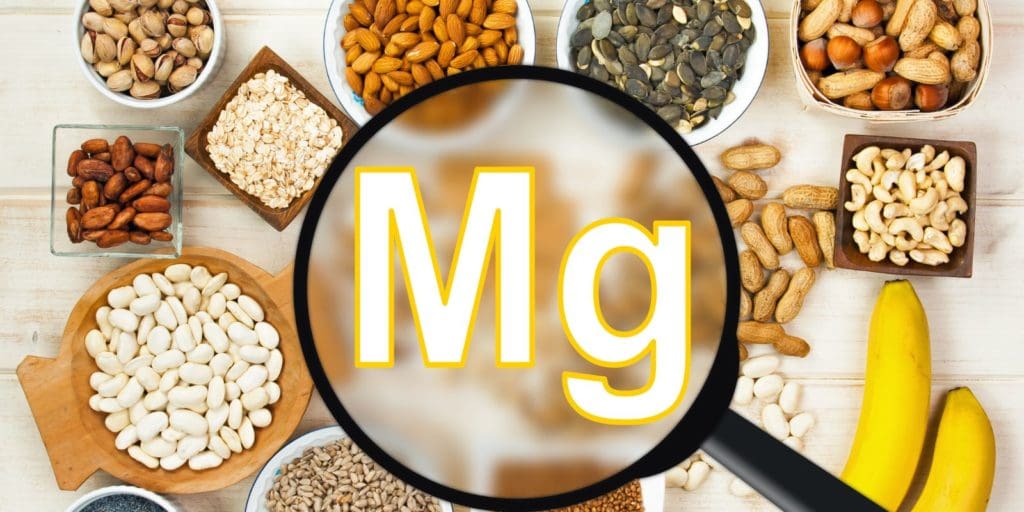As one of the most popular minerals in our body, magnesium plays a vital role in so many different elements of our daily lives. Studies have indicated that magnesium can have a positive impact on blood sugar levels, bone strength, lower stress levels and even your ability to sleep!
Meanwhile, levels of naturally obtained magnesium continue to be too low for lots of people for many reasons, so magnesium supplements are considered one of the best daily pills you can take to improve your all round health.
Why Are Levels Low?
Personal circumstances might be the reason why someone has lower levels of magnesium than is recommended, but there are factors in modern society that are also contributing to deficiencies, beginning with the high level of processed foods, which deplete magnesium from the ingredients.
As an example, 80% of magnesium is lost when wheat is refined into white flour, whilst boiling vegetables leaches magnesium from them, as does transporting them around the world or having them sit on supermarket shelves for days.
Mass farming is another contributor to the depletion of magnesium, whilst fertiliser is higher in calcium than magnesium. Fizzy drinks and sweeteners can also be seen as a modern diet change that wastes the body’s natural magnesium.
Meanwhile, an individual’s situation might affect the level of magnesium through diseases like celiac disease, kidney problems or excessive use of alcohol.
The Health Benefits Of Magnesium
If magnesium is such a good supplement for all-around health, what are the specific benefits it can bring to those that take it?
Benefits Associated With Bone Strength
Magnesium is connected to bone formation (at least 50% of your body’s magnesium is found in your bones) as it can influence bone turnover and studies have shown a positive connection between magnesium intake and bone mineral density. It is also known to help with potentiating vitamin D, another key to bone health.
May Help Lower Blood Sugar
Magnesium is involved in helping your body secrete insulin and may also assist your cells to manage insulin more effectively. There are indicators that magnesium helps those with diabetes manage blood sugar levels and having a good level of magnesium can lower your chances of developing type 2 diabetes.
Can Help With Exercise
Magnesium is able to help those exercising in many ways and that is why it is popular with many athletes. For a start, it helps move blood sugar around the body, so it’s ideal during the resting phase of exercise, bringing valuable sugar to your muscles and helping dissipate lactate, which builds up and causes fatigue.
Some specific forms of magnesium, like taurate, will also help with your electrolyte balance
Assistance To The Brain
Magnesium plays a critical role in brain function and low levels are linked to early stages of depression, so keeping our levels of magnesium at the daily recommended levels will help prevent this from happening. One study shows that those with low levels of magnesium had a 22% greater risk of depression.
Helping To Fight Inflammation
Increased levels of inflammation are linked to low levels of magnesium, a particularly important problem in the older population. In fact, a review of 11 different studies shows that the use of magnesium supplements decreased the level of CRP (c-reactive protein) in people with chronic inflammation. CRP is one of the key markers of inflammation.
May Improve Your Sleep
Magnesium helps regulate some neurotransmitters connected to sleep, for example, gamma-aminobutyric acid and magnesium supplements are often used by people to help with insomnia. In a review of older adults with insomnia, numbers showed that magnesium supplements helped improve the time to sleep by 17 minutes.
How To Get Magnesium
Many foods have high levels of magnesium in them. Starting with seeds, which have some of the highest levels of magnesium per 100g, popular choices would be pumpkin seeds, chia seeds and sesame seeds. Another well-known group is nuts, where peanuts, almonds and cashews will be a good selection.
You might also look at leafy greens like kale, chard and spinach. Grains (wheat, oats), as well as legumes like lentils and beans are naturally high in magnesium. You will get good a intake if you included avocado, cereals and even dark chocolate in your diet, as well as milk and yoghurt.
One final food group to consider is fish. A selection of fish like salmon, tuna or halibut would see you increase the level of magnesium you are getting from your diet.
However, for some, it is still not possible to get enough magnesium through their diet and it’s a popular route for many with magnesium deficiency to start taking supplements. One look online shows that the choice of supplements is extensive and some will bring more benefits than others.
Not All Magnesium Supplements Are Made Equally
Magnesium comes in many forms, including oxides, chloride, carbonate, sulfate, glycinate, malate and lactate, and whilst all offer some benefit, the bioavailability of each is very different and greatly affects the rate at which it can be absorbed.
Forms like citrate, lactate and chloride are more soluble than something like oxide, thus are absorbed more effectively into the gut. As a result, you should be looking for high-quality supplements that are based on these better forms of magnesium. You should also look at a guide to understand what the different forms aid, so your supplement is tailored to your needs.
One very popular example of a high-quality magnesium supplement would be magnesium glycinate, It is one of the best forms of magnesium to digest (meaning your gut will thank you) and have one of the higher rates of absorption.
On top of the usual magnesium benefits like bone strength and managing blood sugar, the glycinate form is considered very good for sleep and promoting a natural state of calmness.
Disclaimer
Always consult with your physician or other health care professional before taking any medication, nutritional or herbal supplements.

